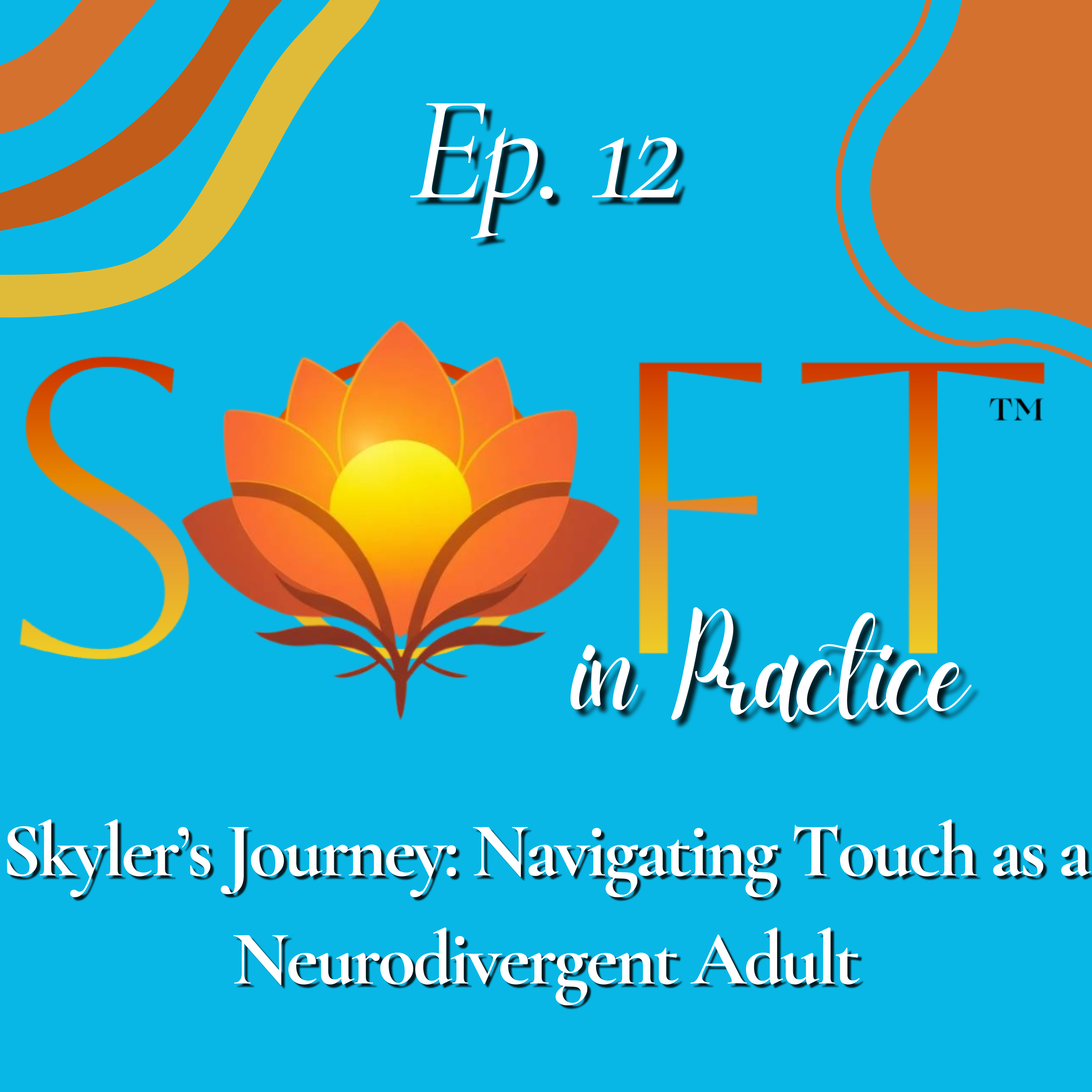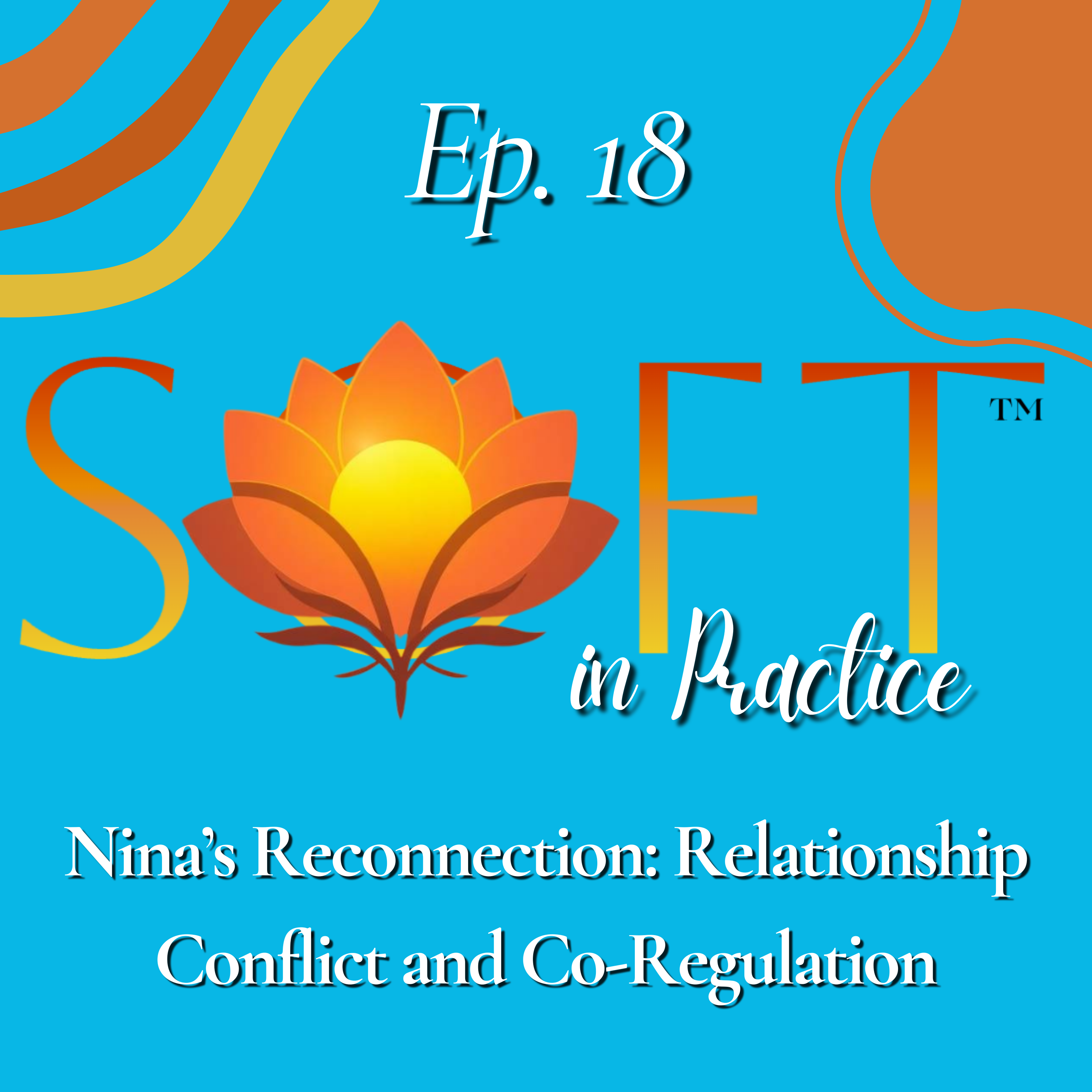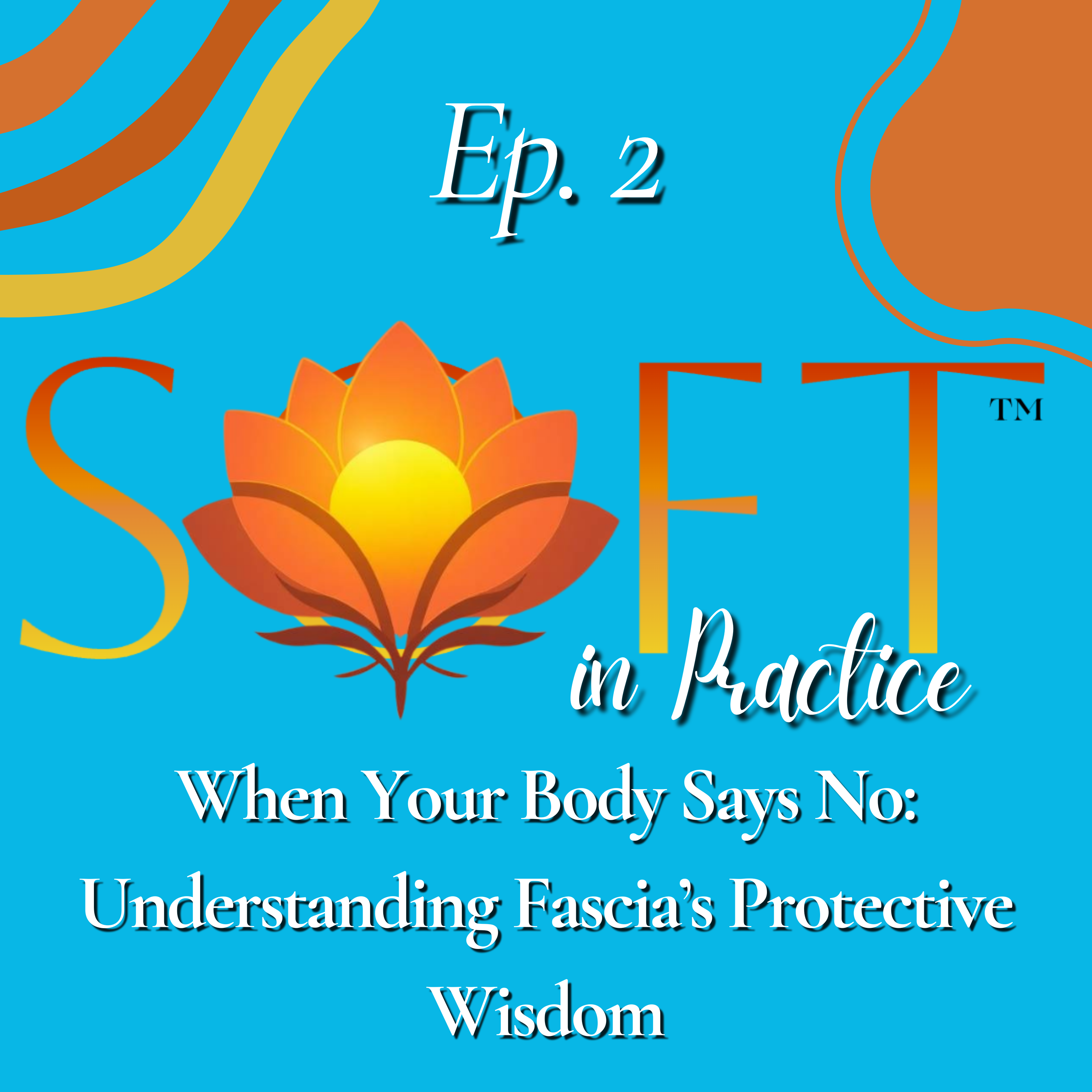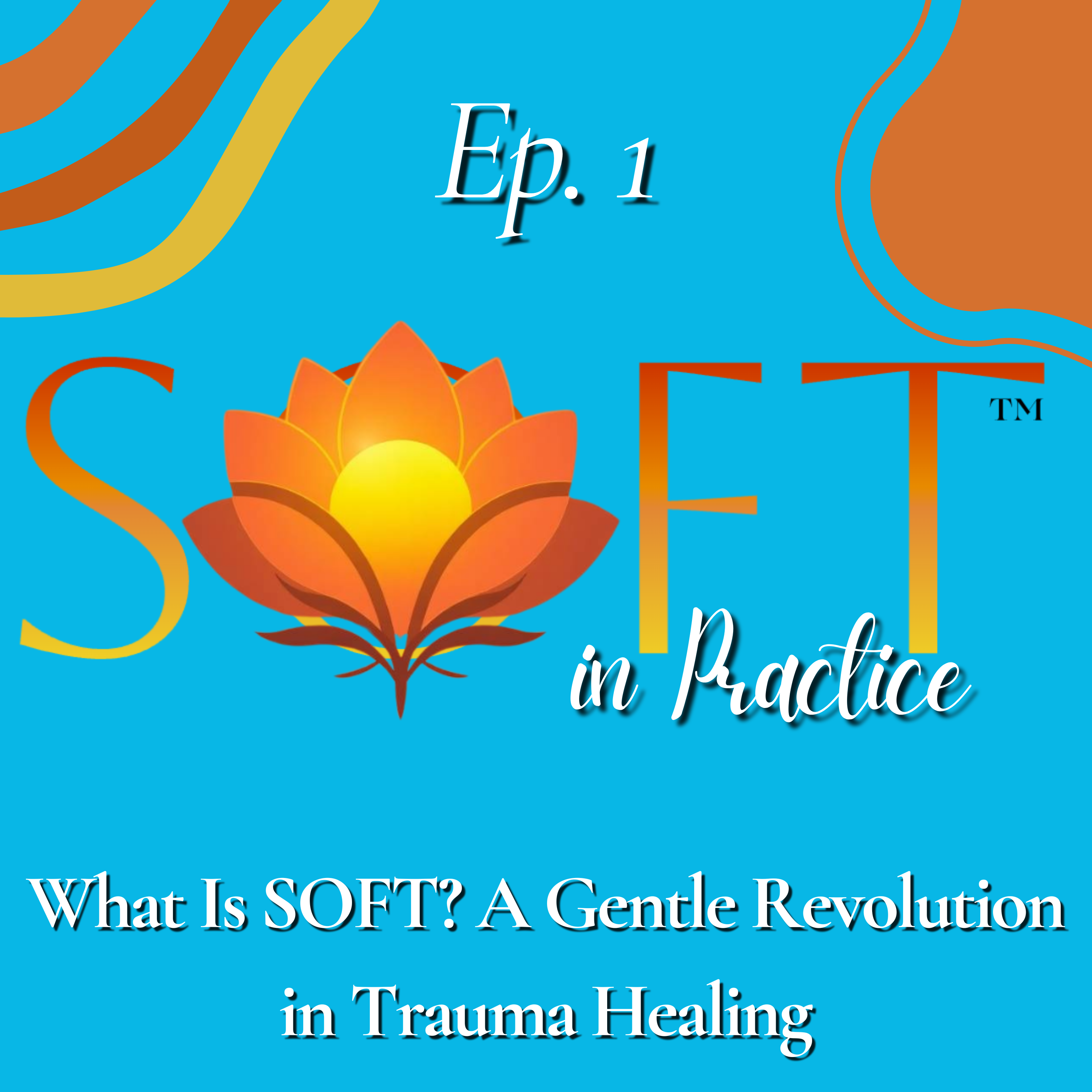Episode Transcript
Skyler is a nonbinary, autistic adult who always found touch and body awareness overwhelming.
From a young age, they noticed that certain textures, sounds, and even gentle touch could feel too intense.
Growing up, Skyler heard messages that they were “too sensitive” or “overreacting.”
This made it hard to trust their own body.
When Skyler started exploring embodied healing, many approaches didn’t fit.
Traditional body scans felt confusing or uncomfortable.
Being asked to stay still and “just notice” their body was nearly impossible.
They felt frustrated and alone.
SOFT offered a different path.
Instead of forcing attention or stillness, Skyler was invited to adapt each practice to their sensory needs.
Sessions started with lights dimmed and a weighted blanket nearby.
Skyler kept their favorite fidget toy in hand.
Rather than scanning their whole body, they picked one area—like a foot or a hand—to notice for just a few seconds.
If focusing felt like too much, movement was welcomed.
Skyler learned that rocking, stimming, and gentle movement were not distractions, but valuable ways their body regulated itself.
When sensations became too intense, Skyler was encouraged to pause, shift their focus, or take a break.
There was no pressure to do the practice “right.”
Gradually, their comfort with self-awareness grew.
Small moments of noticing turned into longer periods of connection.
Touch felt less overwhelming, and Skyler found it easier to communicate their needs to others.
Their relationship improved as they shared these practices with a partner, building trust and understanding.
For neurodivergent bodies, SOFT means flexibility.
If you relate to Skyler, try this:
Pick one part of your body—maybe a finger or your cheek.
Notice how it feels right now.
If you like, add movement or use a favorite object for comfort.
There is no right or wrong way to sense.
Honor your own pacing, take breaks as needed, and let your body lead.
Every way of sensing and regulating is valid.
SOFT supports your unique sensory needs and invites you to build trust with your body, one gentle step at a time.
If you’re a therapist, yoga instructor, or bodyworker who is interested in learning more about SOFT Certification, take a look at our Level 1, 2, and 3 training programs on our website, thesoftapproach.com



